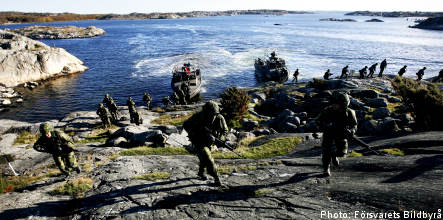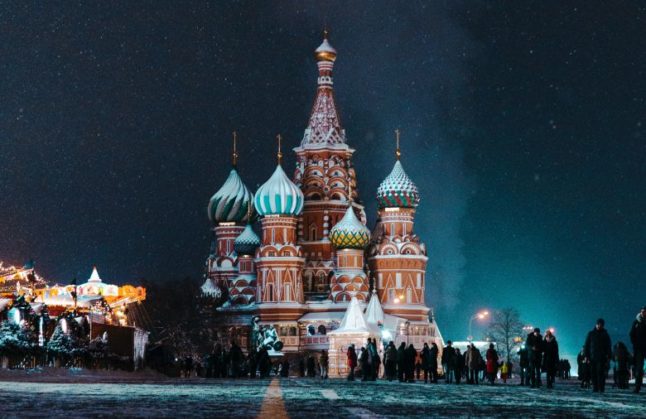During the Cold War, Sweden played a stabilizing role in northern Europe. But today the Swedish military has been almost entirely dismantled and it is hardly likely that the countries in our immediate vicinity view us as any sort of serious actor in terms of security policy, either in the Baltic region or northern Europe.
We have consciously deprived ourselves of the majority of the military resources, which, in the long term, could contribute to peace and stability in the region.
This has happened as a result of successive military advisory committees focusing on short-term threats and avoiding any discussions concerning long-term security measures. In the short-term perspective, the sky is always blue, which helps keeps things nice and cheap.
But has Carl Bildt’s description of the conflict in Georgia perhaps produced a little grey rain cloud in the sky above the parliamentary defence committee?
We should also look at the importance of being the first to arrive with military troops in a conflict zone. This is relevant both in relation to the Baltic states and the peacetime deployment of our military resources.
Should the security situation worsen and the Russian military build-up continue at the current rate, a discussion about the precautionary deployment of NATO or EU troops in the Baltic states will become unavoidable.
This should ideally have happened as a natural step when the Baltic states joined NATO. But deploying military resources to the region in the midst of a taut political situation is difficult to say the least, as it would seriously risk worsening an existing crisis.
It is only possible to avoid considerations of this sort if one allows oneself to believe that treaty texts are capable of having a peace-keeping effect without being backed up by considerable resources.
Finally, the principal of being first in place in a conflict zone is directly applicable to our own security situation with regard to Gotland.
It was a fundamentally stupid move on Sweden’s behalf to withdraw its military units from Gotland. We need to maintain a long-term perspective, month after month, year after year, to display our determination to defend Gotland.
It has nothing to do with threat levels or the current political situation in the Baltic region. What’s important is that we have resources in place in Gotland should tensions flare in the Baltic Sea area.
Other countries in the region should know that we intend securing the island. Any foreign power that feels it may need the island to build a position of strength in the south Baltic must be the one that is forced into an act of open aggression under the terms of the UN treaty, which prohibits states from using violence except in self-defence.
Bo Pellnäs is a retired former colonel in the Swedish Armed Forces.
A longer version of this article first appeared in Swedish on August 13th in Svenska Dagbladet. Translation: The Local.



 Please whitelist us to continue reading.
Please whitelist us to continue reading.